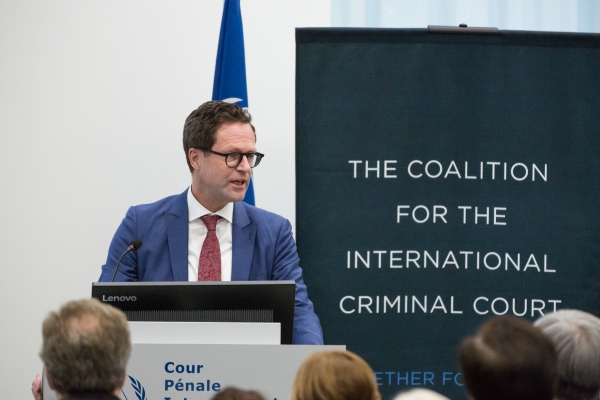This transitional justice week saw an investigation by our correspondent in The Hague into the administrative problems of the International Criminal Court, whose staff management has been sanctioned. This is a singular situation for a Court that is supposed to represent the law. As the Latin proverb says, “who will watch the watchman”?
“The administrative court of the International Labour Organization (ILO), to which ICC employees had recourse, rendered six decisions on January 24, 2018, finding that the Court should pay material and moral damages after firing several employees,” explains our correspondent Stéphanie Maupas. “The judges in Geneva found that redundancy procedures put in place by the Registrar were `without legal foundation and, therefore, unlawful`. This is a big paradox for an organization that employs hundreds of lawyers and aims to be a model in matters of law.”
The problem is all the more pressing because the mandate of current Registrar Herman von Hebel, the highest ranking ICC employee after the President, is coming to an end and the Dutch lawyer is a candidate for another mandate. Over and above the question of individuals is the whole issue of how the ICC is managed. “The number of staff at the ICC continues to increase on a regular basis,” explains JusticeInfo.net. “The budget committee is worried about the cost of salaries, including upcoming retirements, and is asking the Court to shed light on internal staff evaluation procedures.” And so the Court, in such a situation, can hardly give lessons on respect of the law.
Another place that is asking questions about the way its courts work is Tunisia, which is to set up “specialized Chambers” this March. They are “a transitional judicial mechanism to prosecute the suspected perpetrators of human rights violations committed between July 1955 and December 2013”, writes our correspondent in Tunis.
Tunisian jurists fear that these courts could be swamped with cases, given the high number filed at the Truth and Justice Commission. Another fear is that they could suffer the same lack of cooperation from the authorities as the Commission. Also, Tunisian law does not include the concept of “command responsibility”, which could make it harder to prosecute and try those most responsible.
In this overview of transitional justice difficulties, the Democratic Republic of Congo appears once again the sick man of Africa. Several Congolese NGOs expressed concern in a report that the so-called New Year’s Eve agreement to prepare presidential elections and ensure a peaceful transfer of power has not been implemented. “A year after the Accord was signed, politics is more and more judicialized and justice is more and more politicized,” says civil society representative Emmanuel Kabengele Kalonji. “We see that in the way the legal cases of opposition people are treated.” He also denounces the “absence of notable progress in holding to account members of the security and defence forces responsible for violence and excessive use of force”.







